Do You Like Tangerine Vanilla Marmalade?
Last week, Wyatt found himself at the intersection of Jeffrey Steingarten (The Man Who Ate Everything) and Paddington Bear (profound lover of marmalade). Let me explain.
When we returned from Los Angeles, I was confronted by about 10 pounds of tangerines that had been collecting in the refrigerator over the last few months, thanks to our bi-weekly veggie (and and tangerine) box. The tangerines were not delicious enough to eat on their own, and yet there wasn't anything actually wrong with them, so I kept sending them to refrigerator purgatory. I tucked them to the back of the crisper drawers and shelves until there was nowhere left for me to hide them, and there was little space to put other food we were actually going to eat.
Initially, Wyatt thought it would be great to juice all of the the tangerines for himself. He hand-squeezed about a pint of juice while I researched how to make marmalade. Around the time Wyatt's arms were ready to fall off, I had settled on a marmalade concept (Tangerine Vanilla) and had chosen a recipe.
"Mom. I don't even know WHY you're going to make marmalade. I don't LIKE orange rinds in marmalade, or in chocolate, or anything," Wyatt said as he wrinkled his nose and waved a hand in front of his half-open mouth, as if even the concept of marmalade was putrid. "Well, Dad likes it, your arms are tired, and we might as well try making it with tangerines," I said. "Can't we just get a juicer?" "No," I laughed, "we're not getting a juicer." "Fine. I haven't tried tangerine marmalade. And I like vanilla. So I'll try it, but I don't feel like making it."
So I made it. I followed the concept in this recipe, but actually followed this recipe, ratios, and these canning instructions to get the job done, because it is only with the support of Marisa McClellan that I dare to can. I steeped and cooked one-and-a-half split vanilla beans in the marmalade pot, and once the marmalade tasted vanilla-y enough to me, I removed the pods, scraping the seeds into the pot.
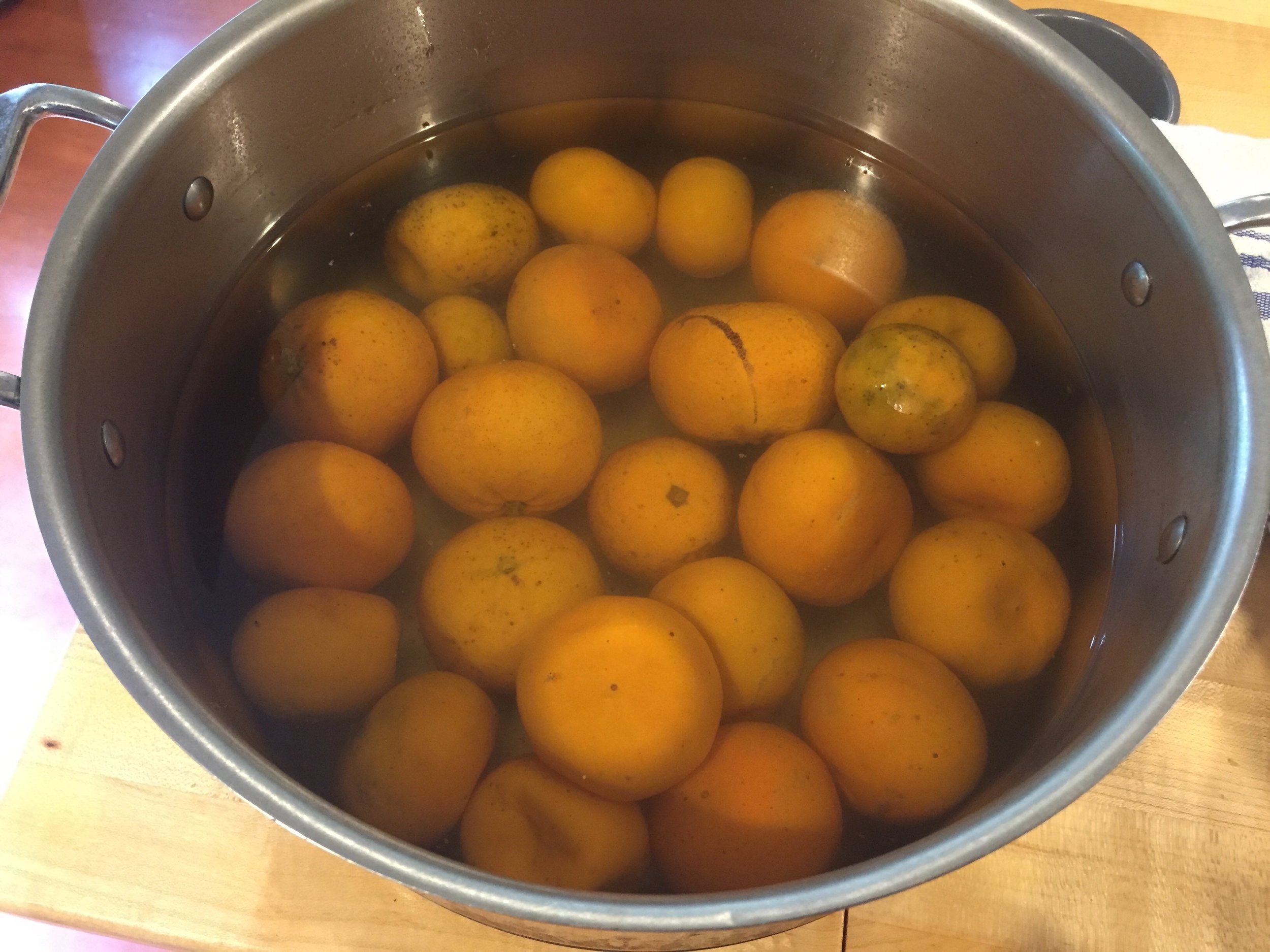
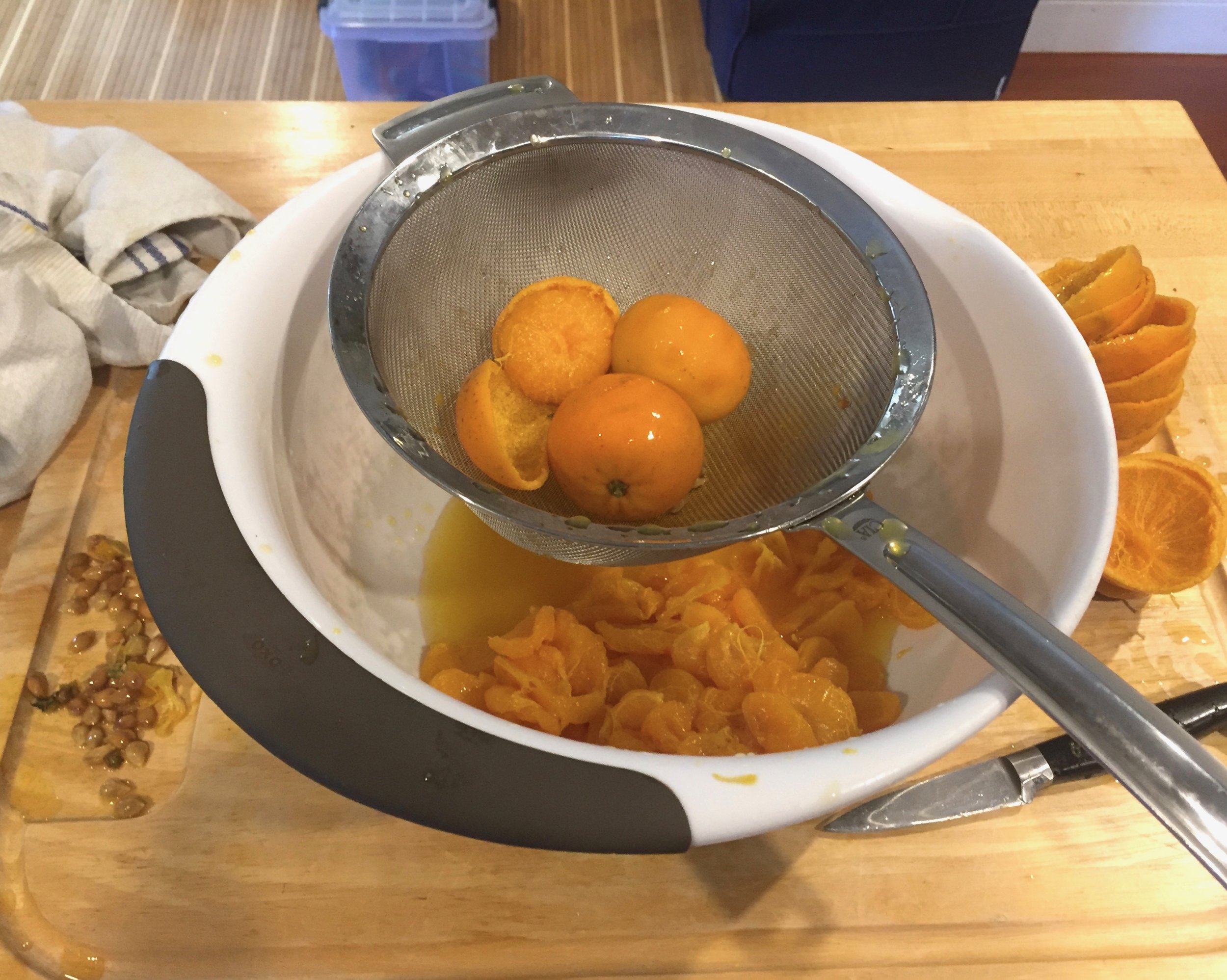
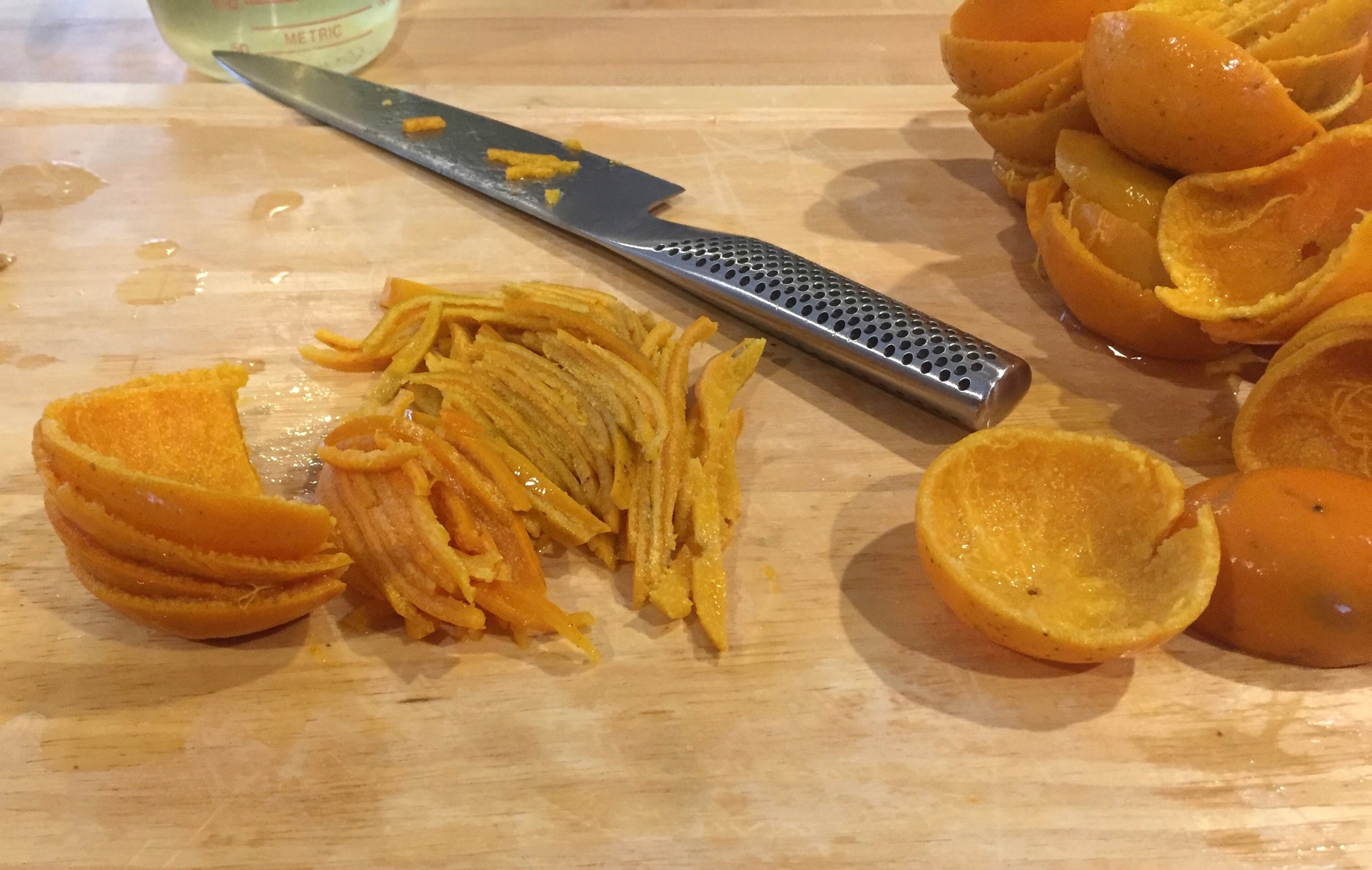
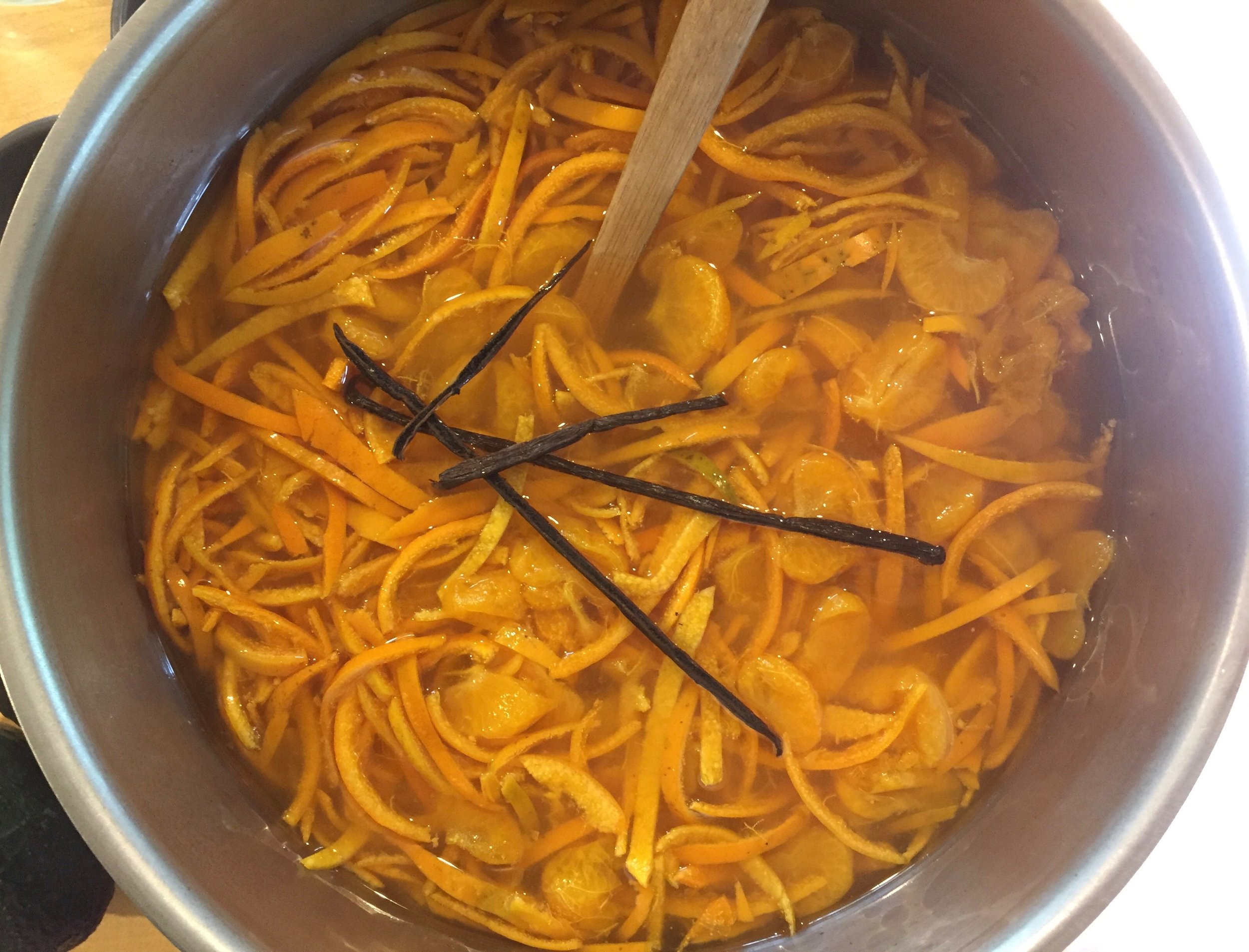
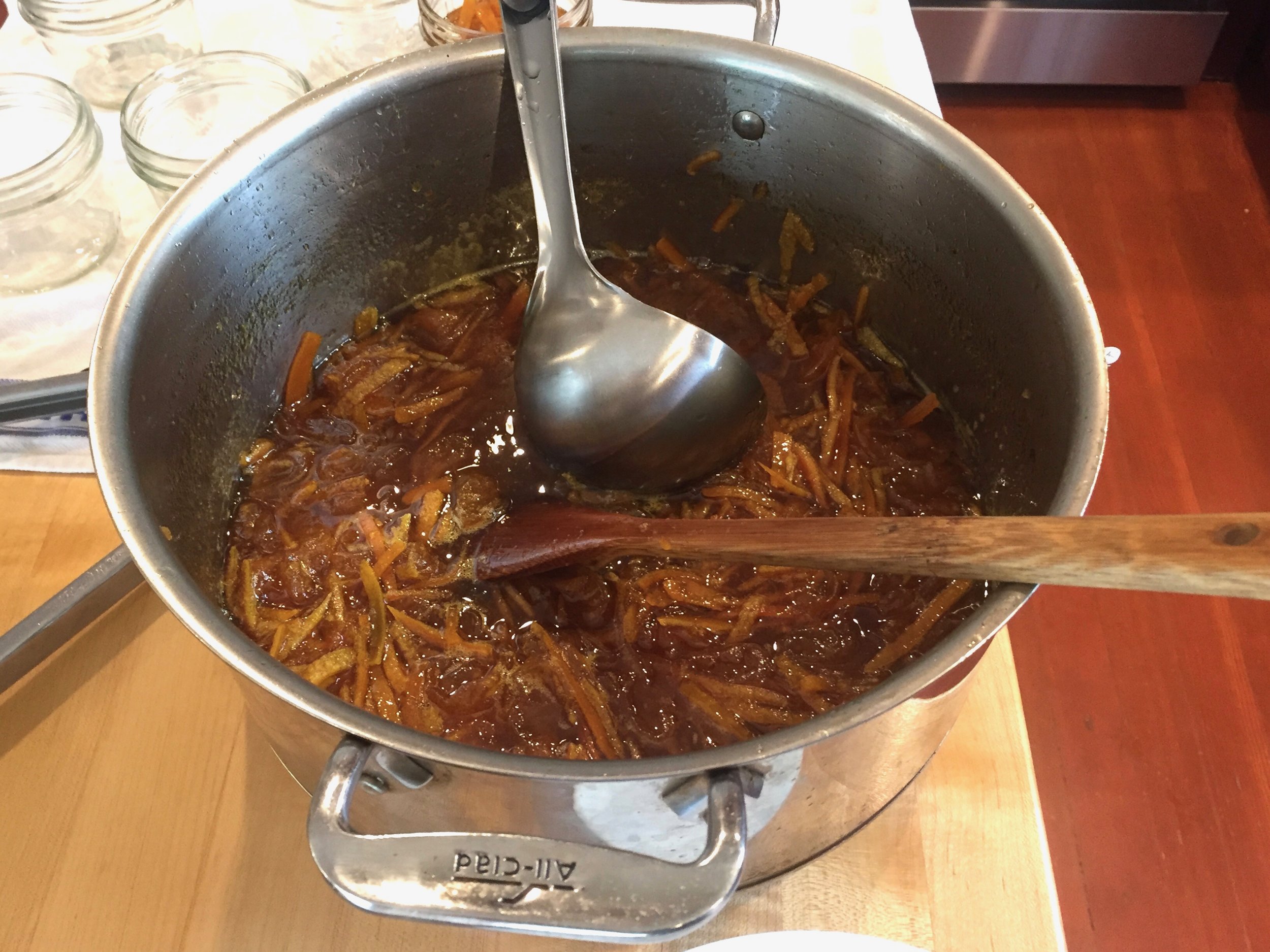
Initially, the marmalade was too runny (I missed this part--save the seeds!), so I re-boiled it (what a pain, but worth it), re-canned it, and it set after that.
Marc loved the marmalade, I thought it was very good, and when Wyatt tried a taste the next morning, he immediately said, "This is great!" followed just a moment later by the putrid-face-hand-wave, "No. I still don't like it." It was the rind--he still couldn't stand it.
I gave a jar of the marmalade to my friend and her daughter (who's Wyatt's friend). My friend reported back that her daughter thought I had forgotten to remove all the pieces of rind, and that she didn't care for it. I understood completely. But three days later, things had changed. My friend explained, "She tried it again this morning, and asked for more because she found she actually did like it!"
I told Wyatt about his friend's change of heart, and he suddenly got very serious. "Mom. How many days did she try it for?" I said, "Oh, I don't know. Maybe three or four?" He responded, "I only tried it for two. Give me some, now please, on a cracker. With butter." He started to nibble, then bite, and then he ate three more crackers with butter and a thick spread of marmalade, because as he said, "I LIKE IT NOW. It's really good."
It occurred to me this was some kind of weirdly positive (but possibly short-lived) peer-pressure situation that Wyatt had taken as a competition, and he'd just start avoiding marmalade again as soon as he reasonably could. But no. He has continued to eat marmalade, discuss it, and hoard it with the zeal of the newly converted.
When kids come around to liking challenging foods or flavors, like the bitterness in marmalade, we praise them and congratulate them for being open-minded and continuing to taste new (or old) things. But this type of encouraging response isn't one I usually offer to adults, and I probably should offer it, albeit in a more subdued way. When reading the hilarious (and accurate) Oatmeal piece on core beliefs, it occurred to me that in addition to being willing to stop, listen, and change, we should also be ready to accept and embrace it when others change. What use is, "Well, you didn't USED to like marmalade!" or "I TOLD you marmalade was GOOD!" when really, all you need to say is, "Oh, wonderful! I'm so glad you like it. Would you like a jar to take home?"


